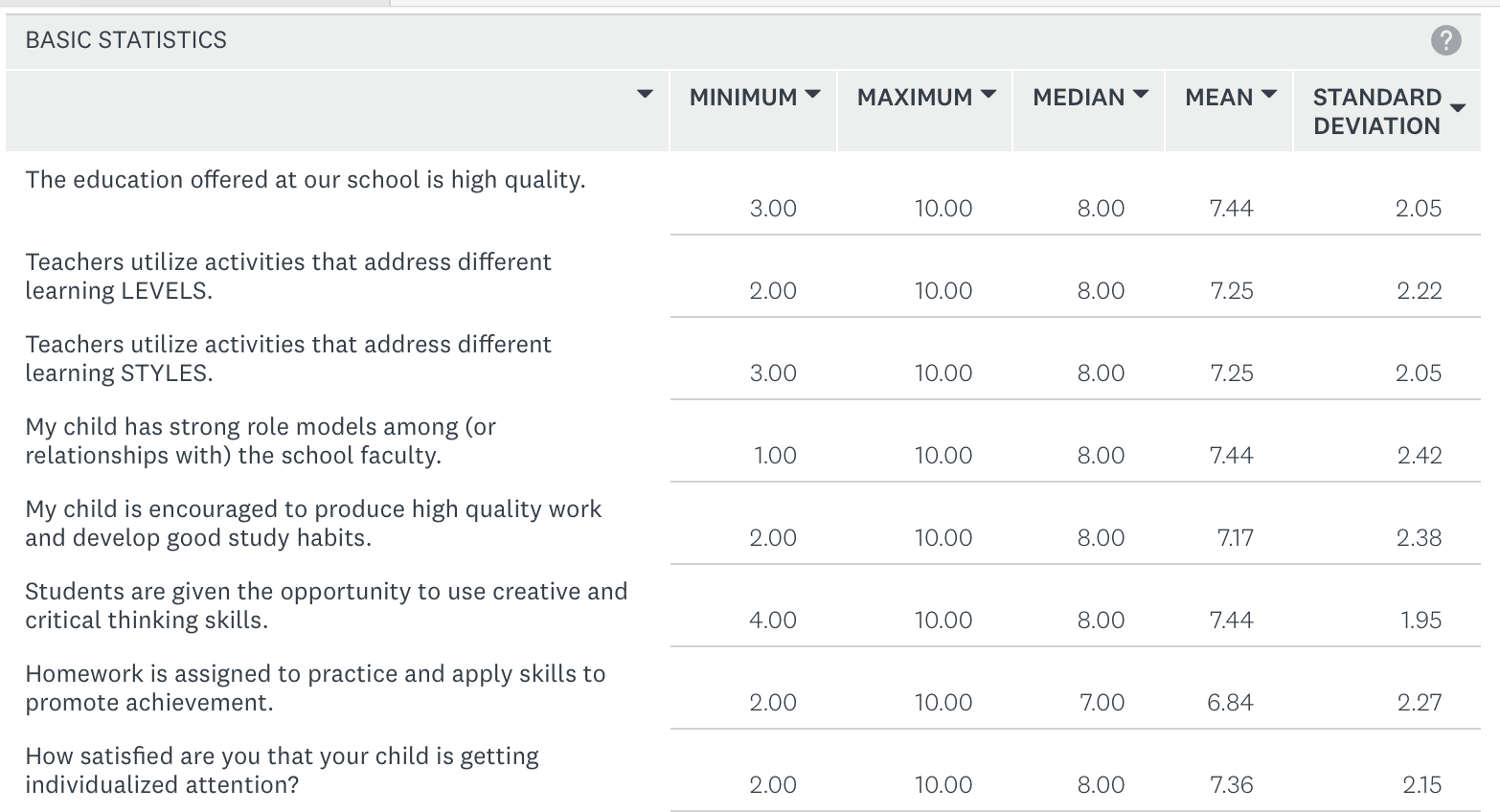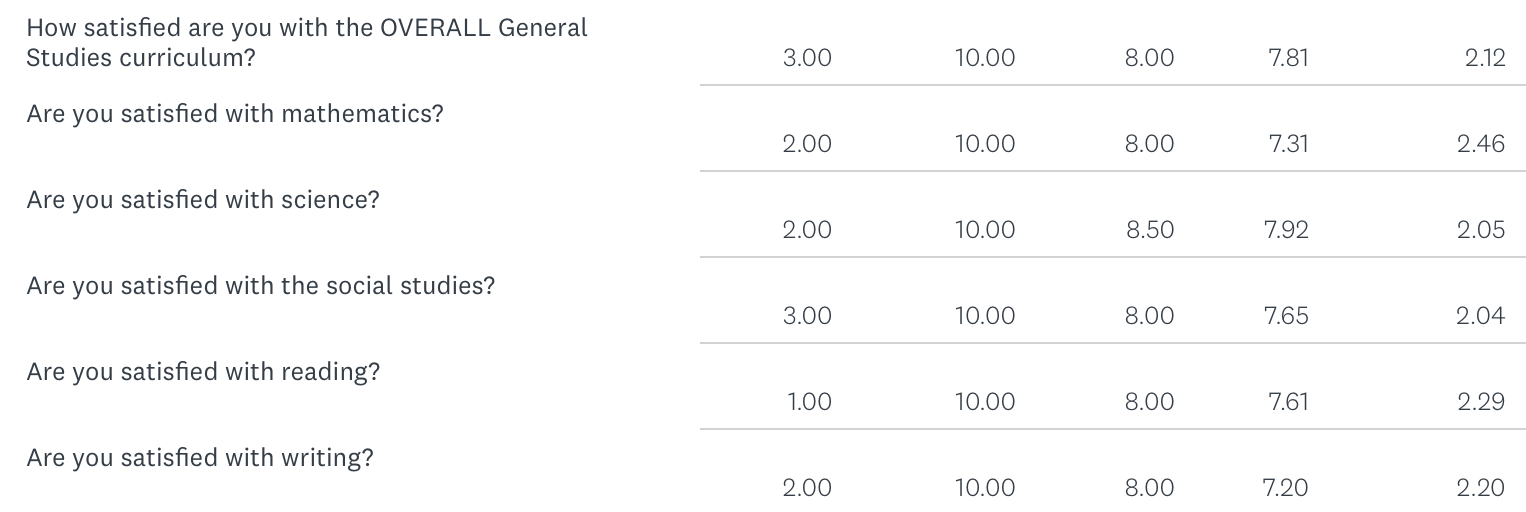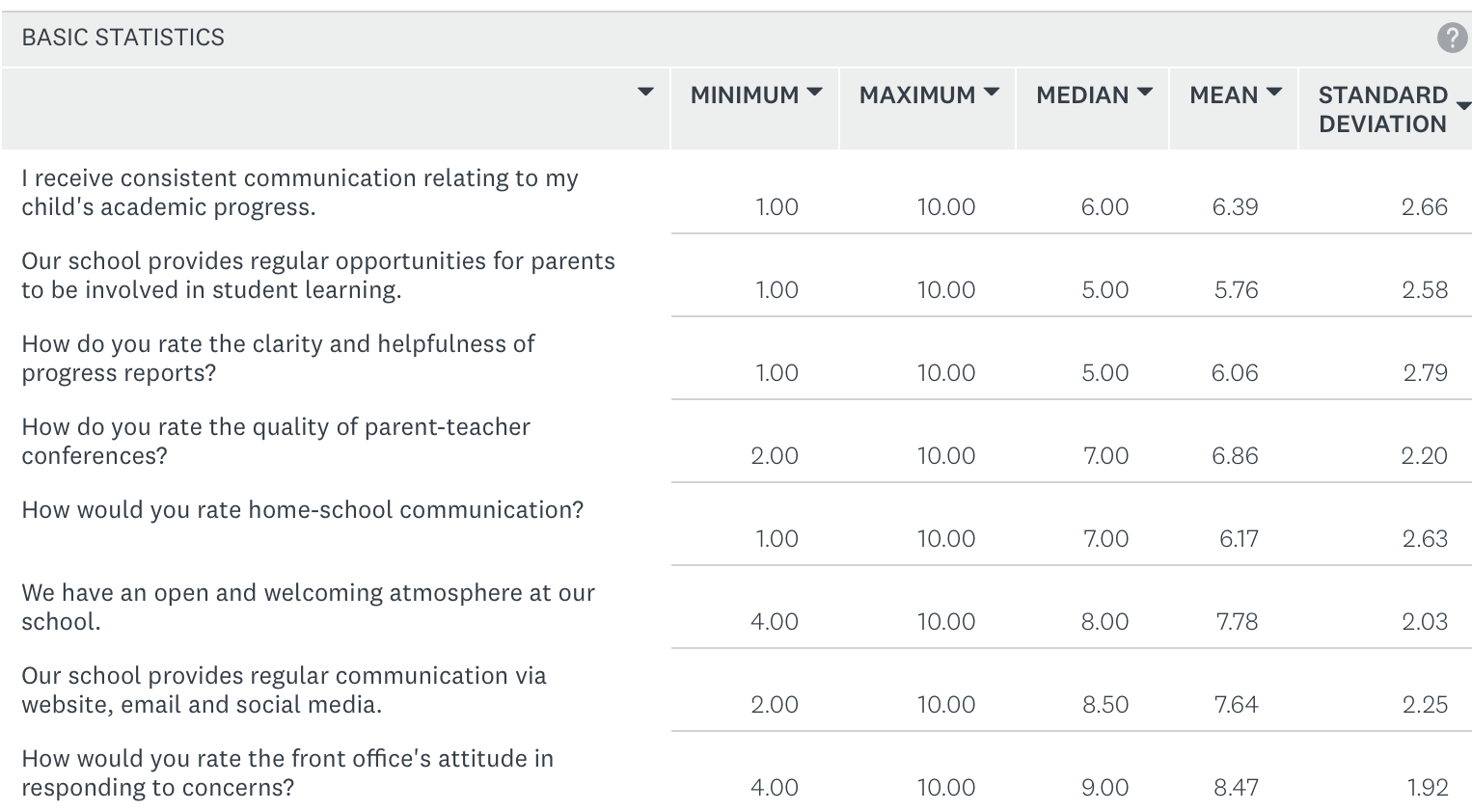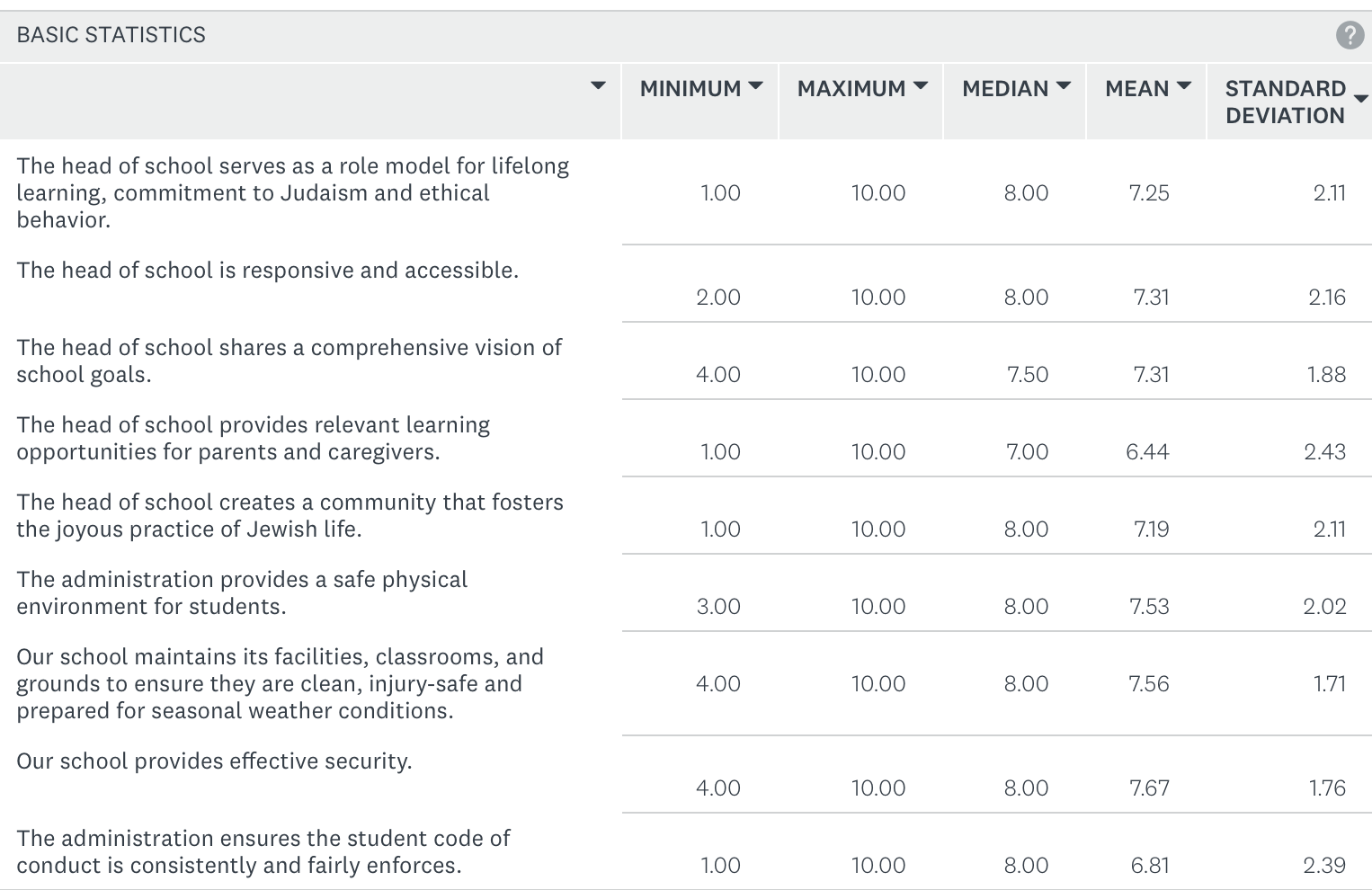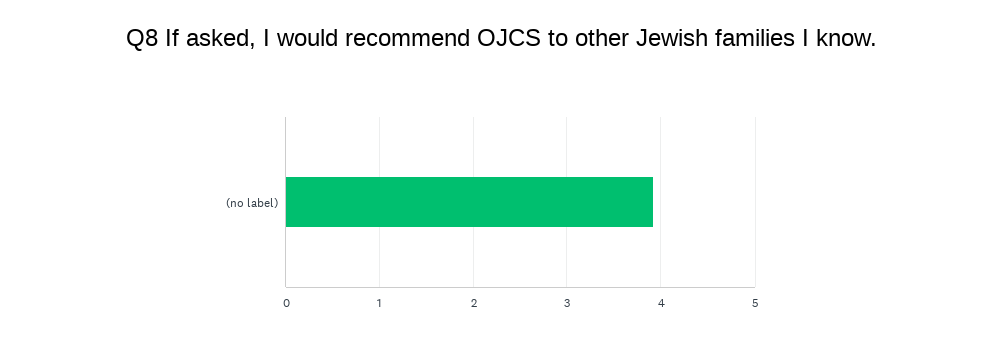The twin calendars of secular and Jewish life sometimes means that anniversaries are multiple depending on which calendar you mark the first event. For example, the secular date of my father’s (Z”l) passing is seared in for commemoration as is the Hebrew date which serves as yahrtzeit. To me this is an extra opportunity to remember, to celebrate his life and to be inspired to carry his legacy forward – I find the double anniversary welcome. As we prepare to usher in my most favourite of Jewish Holidays, Sukkot, it occurs to me that although we just went through all the first anniversary of October 7th experiences, the Jewish Calendar will echo the sentiment come Erev Simchat Torah, when most of us heard of the horrific events.
I’m going to share below most of my usual thoughts and suggestions about how to best celebrate what is supposed to be the most joyous of our holidays – literally named as the “season of our rejoicing” – but I recognize that those whose lives are equally governed by both second and Jewish calendars, may not yet feel ready to celebrate with full or even bifurcated hearts. For those, I simply remind that part of what Sukkot brings by virtue of dwelling in temporary structures is a concretization of life’s fragility that we should always bear in mind…but perhaps even more so now. There may very well be new traditions to consider in a post-October 7th world, perhaps you leave a seat empty for the hostages or you include victims like Hersh amongst your ushpizin. We are all still trying to figure it out and you should land wherever you feel comfortable…”Sukkot as normal,” “Sukkot filtered through October 7th,” or anywhere between.
And now I am going to pivot back to “Sukkot as normal” for those who wish…

After having shofar-ed into Rosh Hashanah and leaned into Yom Kippur, it is time to hop into my favorite holiday of them all…Sukkot!
Our OJCS Sukkah is up and we’ve added a few satellite sukkot as well to give our growing school enough space to for all the eating, celebrating, shake-shake-shaking and hopping as a school community that will make up a significant portion of next week. Great thanks to all our teachers for the hard work that goes into holiday preparation/celebration and keeping the normal routines of school moving forward as per usual.
As I mentioned above, Sukkot is absolutely my favorite holiday of the entire year. There is nothing else like it on the Jewish Calendar – sitting outside in a sukkah you built yourself (which is pretty much the one and only thing I actually can and do build), with handmade decorations from your children, enjoying good food with friends and family in the night air, the citrusy smell of etrog lingering and mixing with verdant lulav – this is experiential Judaism at its finest. There is a reason why this holiday is also known as Moadim L’Simchah – the Season of Our Rejoicing.
My annual, completely non-judgy plea for this weekend is a reminder that if our children – if we – only experience the Judaism of Rosh Hashanah and Yom Kippur and not the Judaism of Sukkot, then we are not exposing them – our ourselves – to the full range of beauty and joy that our tradition has to offer. So why, in fact, is this such a common occurrence?
 No one likes to feel uncomfortable, and adults especially, are wary of feeling under-educated or unprepared. I know how I felt encountering new Jewish rituals for the first time as an adult – it was scary. The amount of “stuff” Judaism asks of us to do – building the sukkah with precise specifications, shaking the lulav and etrog in the proscribed way, chanting less-familiar prayers, coming to synagogue on unfamiliar days – can be overwhelming.
No one likes to feel uncomfortable, and adults especially, are wary of feeling under-educated or unprepared. I know how I felt encountering new Jewish rituals for the first time as an adult – it was scary. The amount of “stuff” Judaism asks of us to do – building the sukkah with precise specifications, shaking the lulav and etrog in the proscribed way, chanting less-familiar prayers, coming to synagogue on unfamiliar days – can be overwhelming.
But don’t lose the sukkah through the trees…
If the idea of building a sukkah is either overwhelming or unrealistic at this time, in the spirit of trying to turn etrogs into etrog-ade, think of this year as an opportunity to once again pick one new tradition to experiment with. Shake a lulav and etrog. Eat in the sukkah (or in something sukkah-adjacent). Attend or livestream a service. Ask your child(ren)’s Jewish Studies Teacher(s) to send home stories, questions, or ideas. Come use the OJCS Sukkah. Come borrow OJCS lulav and etrogs.
How can I help? What can I do? These are actual questions – email me and it would be greatest pleasure. My sukkah doors are open as well. Literally, be my guest. Let this Sukkot truly be the season of our great rejoicing. I hope many students find their way to synagogue and into sukkot this Sukkot. I hope many parents push themselves out of their comfort zones and join the fun. But most importantly, I hope we – OJCS – are up to the task of educating, inspiring and working in partnership with our families so that those who wish to, are able to add Sukkot as a next stop on their Jewish journeys (#NorthStar).
Chag sameach!

There is a concept in Judaism called hiddur mitzvah which is the “beautification of the mitzvah” and it calls upon us to think of ways to go that little extra mile to make a mitzvah extra-special. There is no better holiday for this concept than Sukkot! Here are two ways you can amplify your Sukkot celebrations this year:
For the musically inclined, please enjoy this Sukkot Playlist courtesy of our friends at PJ Library:
For the fermentedly inclined, please enjoy this recipe for making homemade etrog liqueur…
…and for the inebriated-ly inclined, please enjoy this link to the many artisanal etrog cocktails you may enjoy.

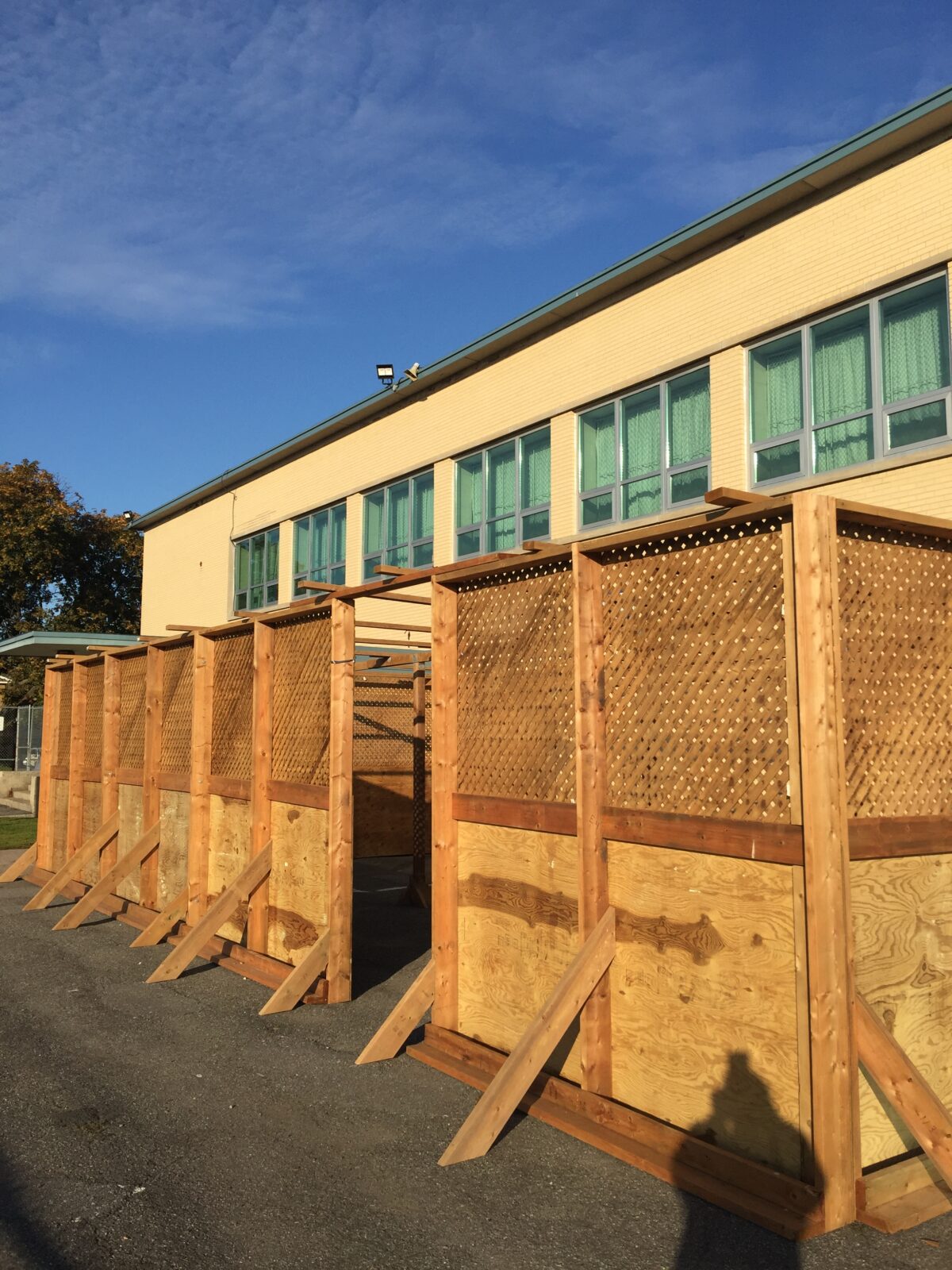

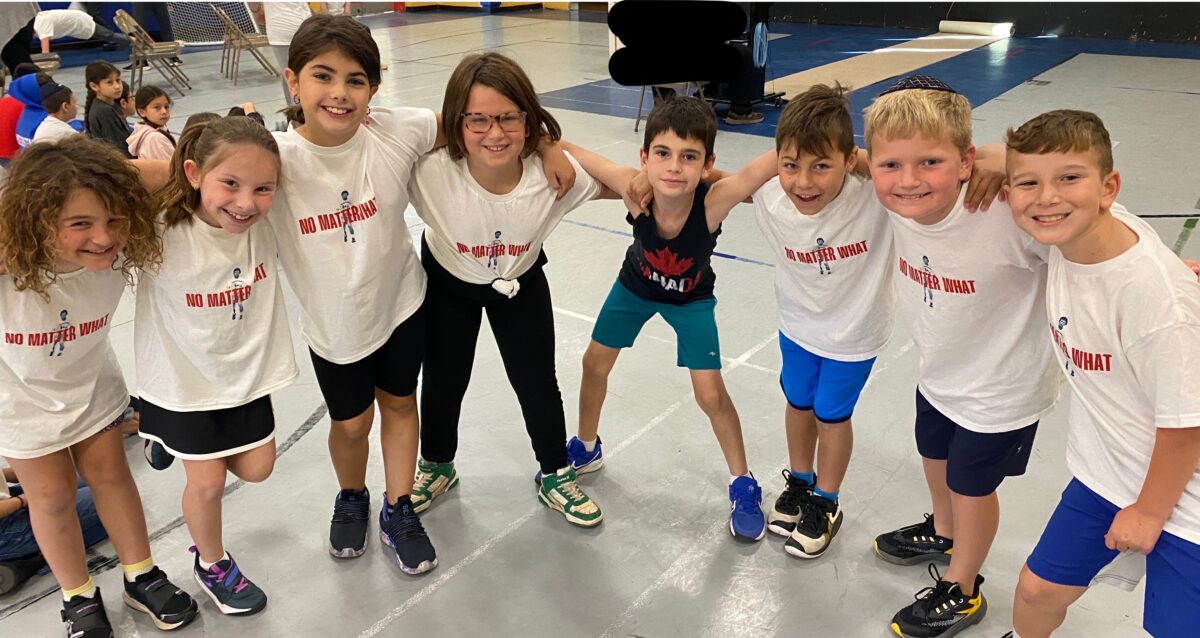
 As the eve of a new Jewish Year approaches, it is my most sincerest hope that this is the year we’ve been waiting for. To all the teachers, staff, parents, students, donors, supporters, and friends in this special school- thank you for your enthusiasm and your hard work. 5785 is shaping up to be a quite an amazing year!
As the eve of a new Jewish Year approaches, it is my most sincerest hope that this is the year we’ve been waiting for. To all the teachers, staff, parents, students, donors, supporters, and friends in this special school- thank you for your enthusiasm and your hard work. 5785 is shaping up to be a quite an amazing year!

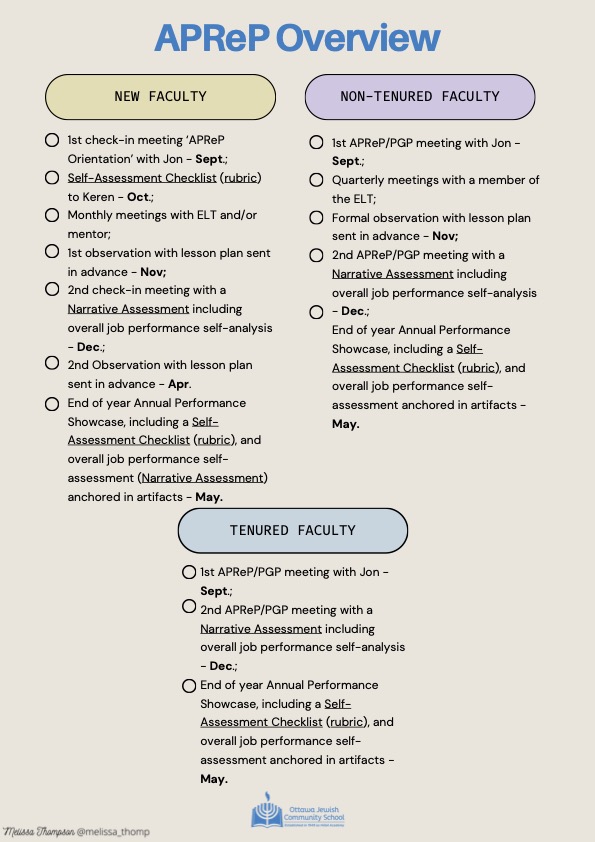
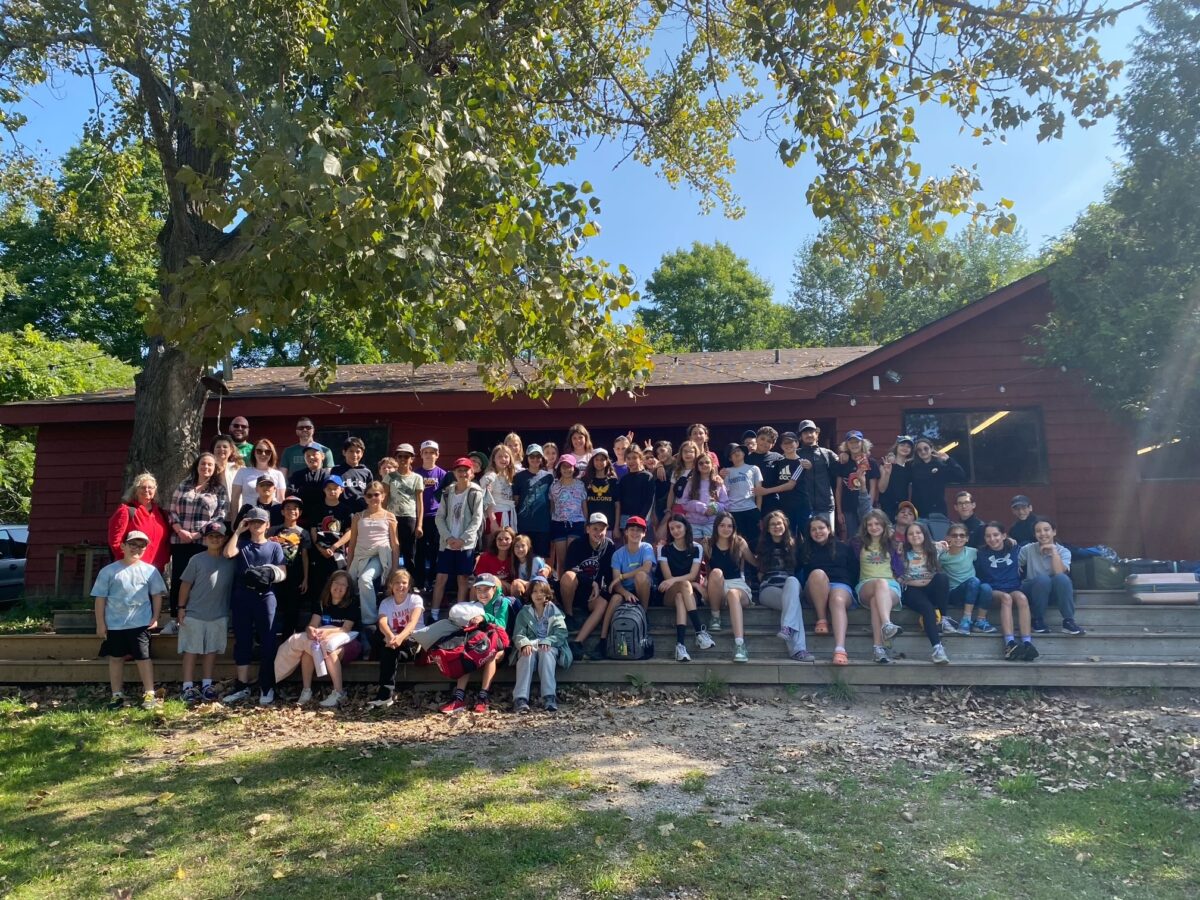

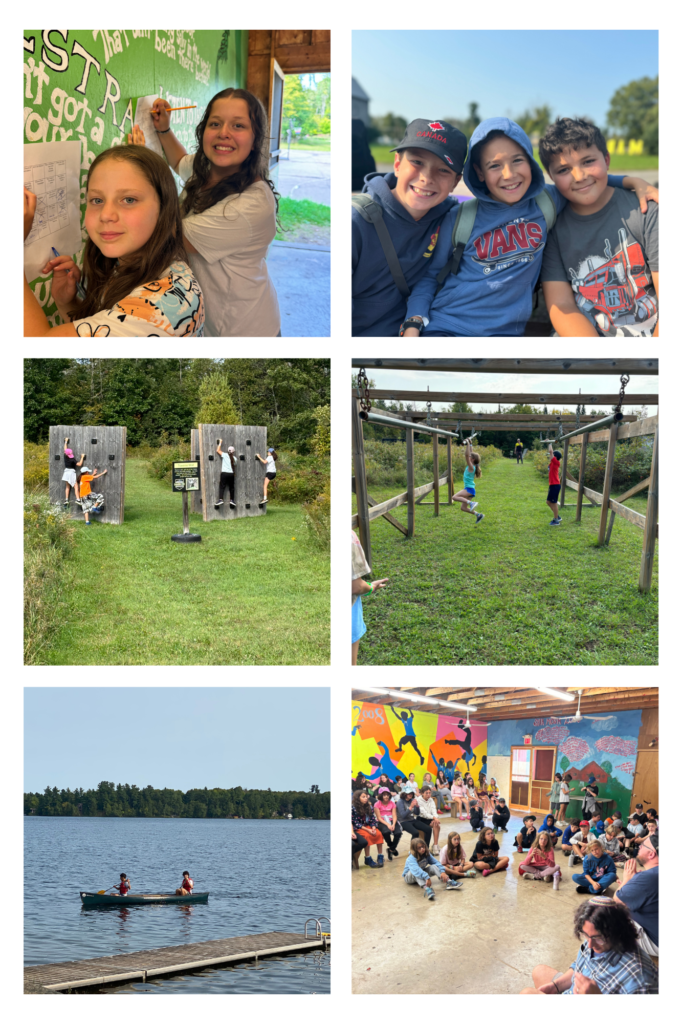
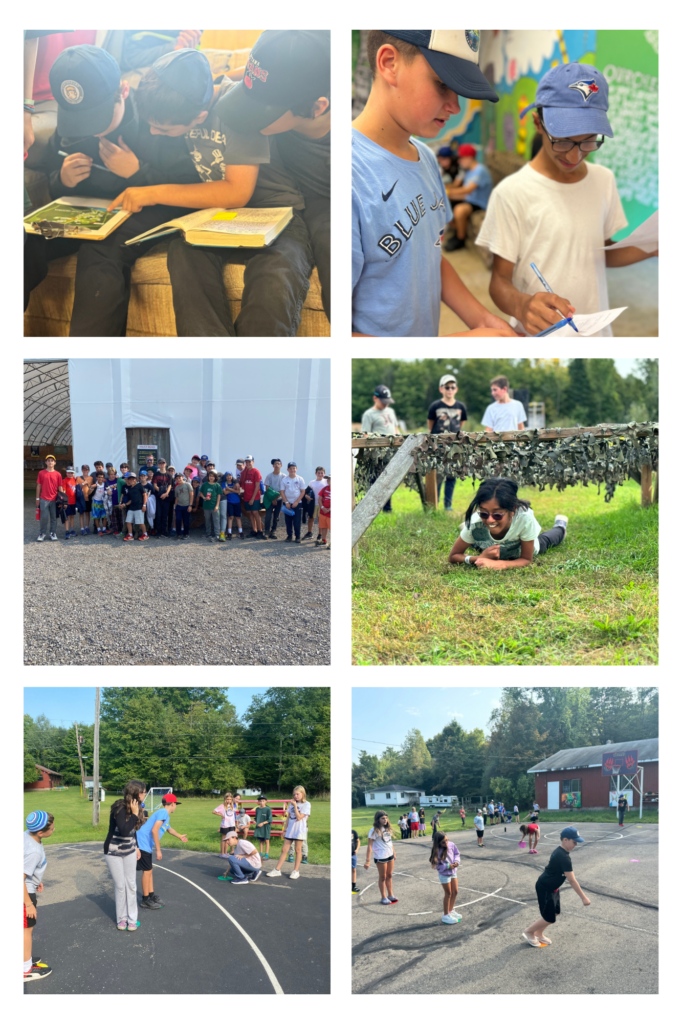

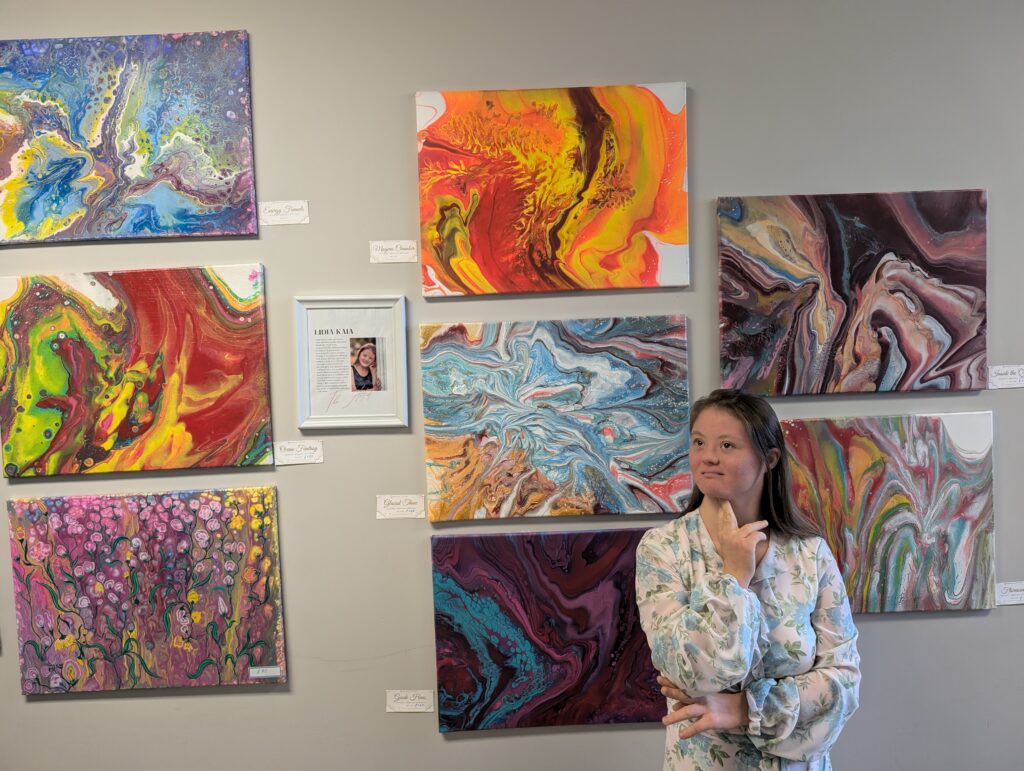
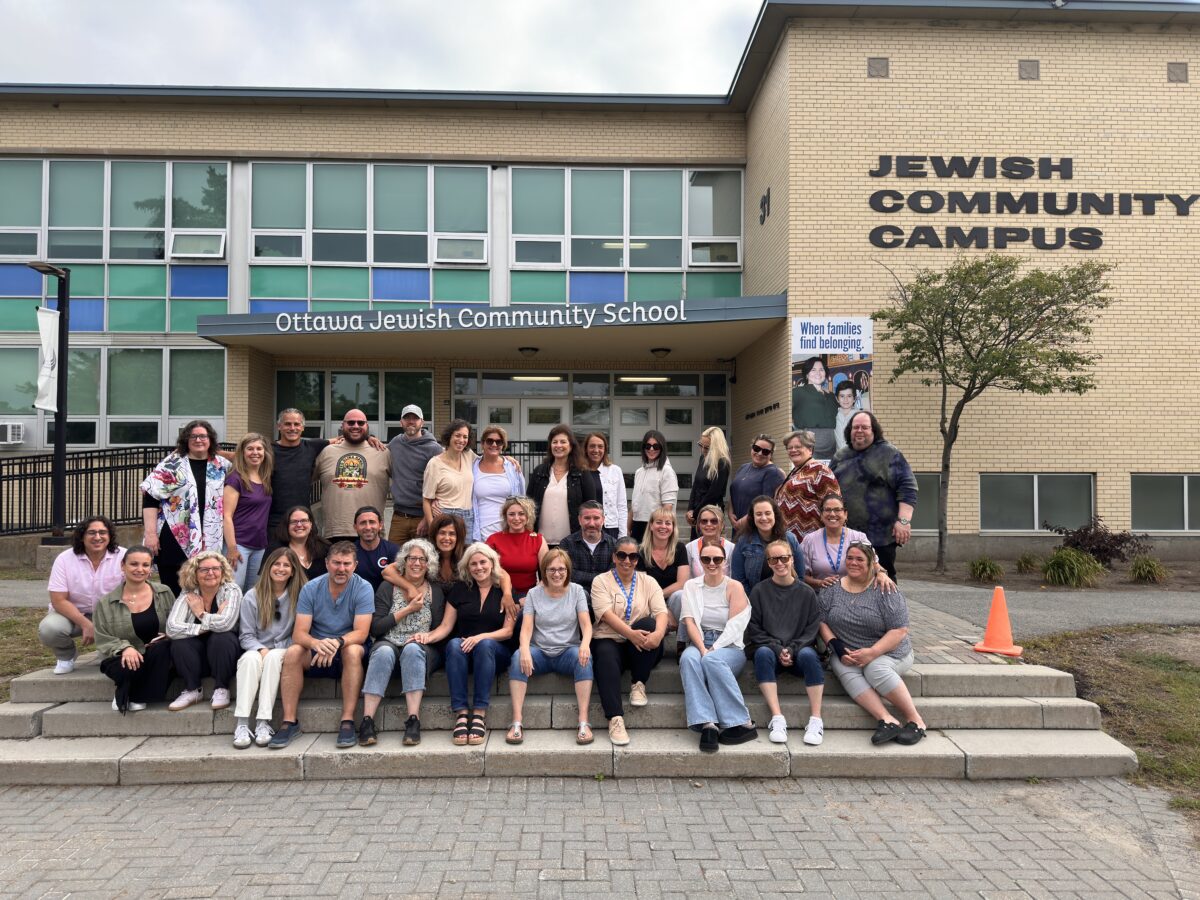
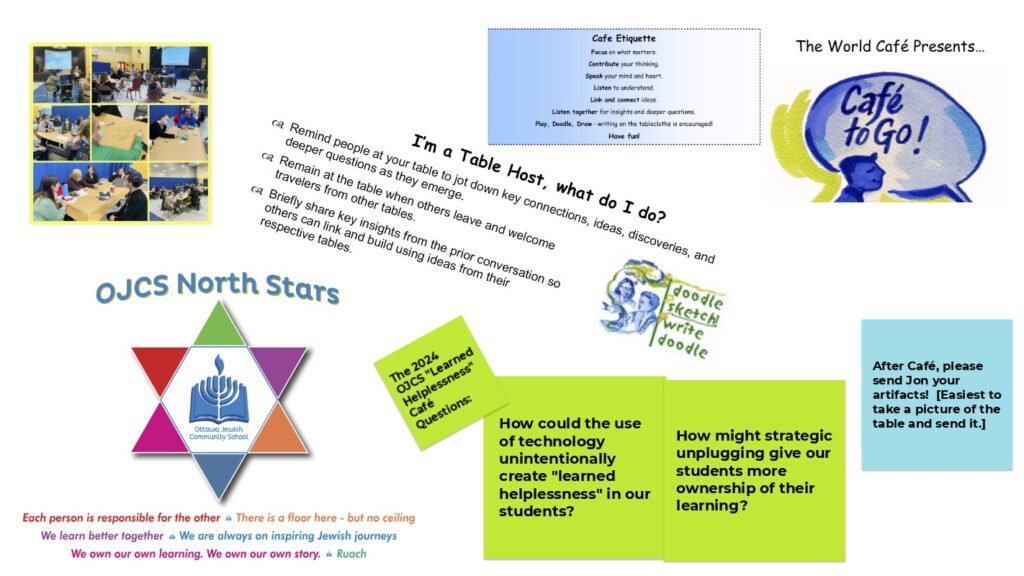
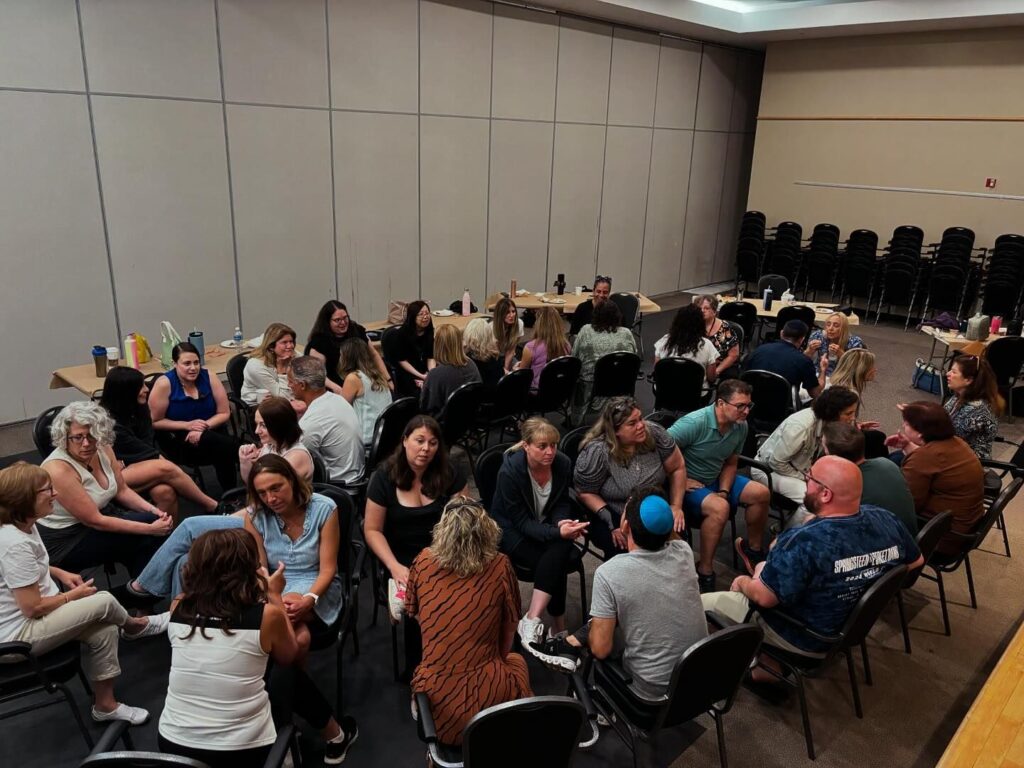
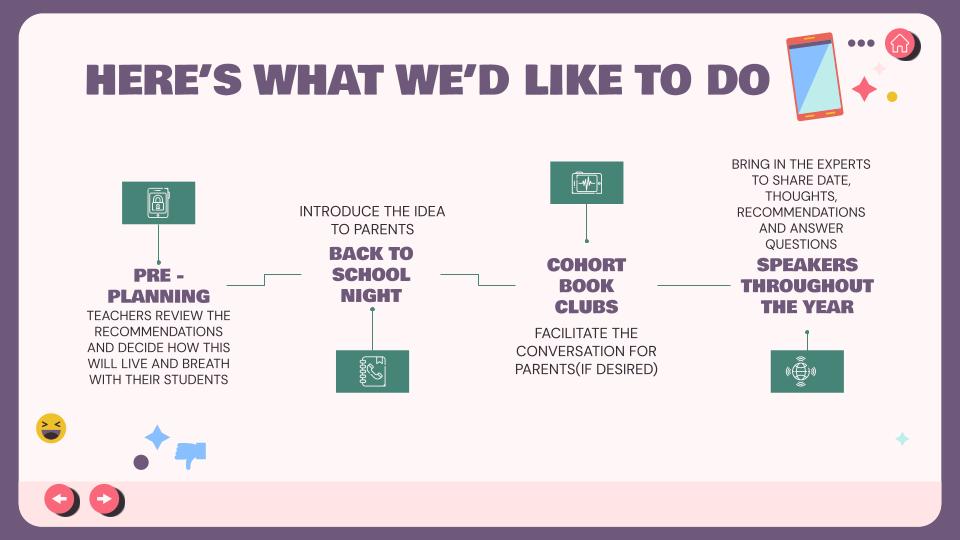






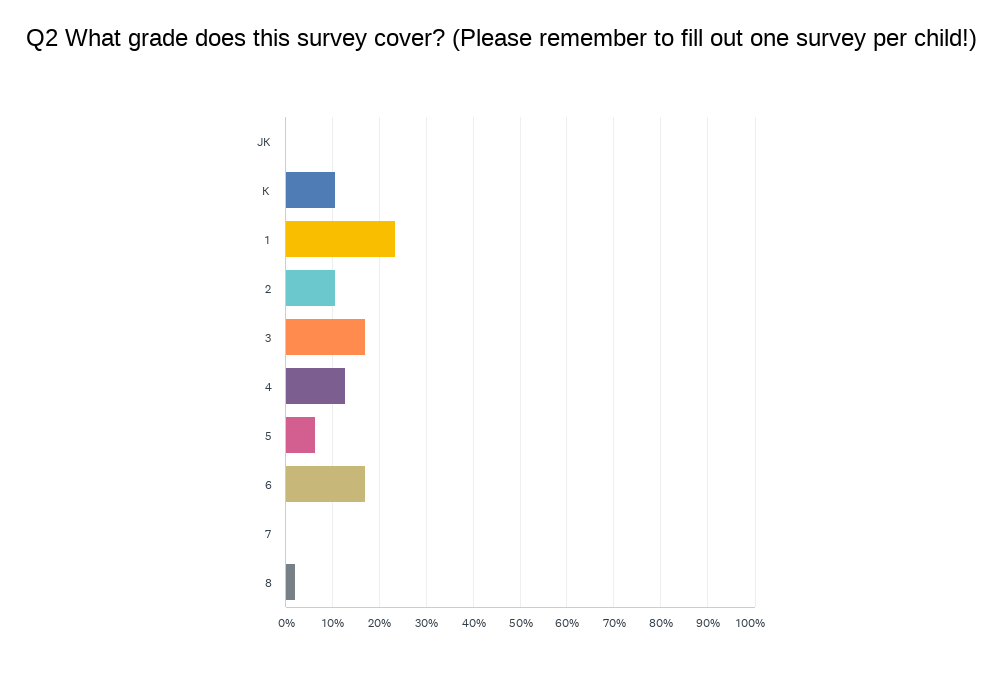
 Without knowing how representative this fifth of students is, this year’s data set is lighter on the “no’s”. Of course the “no’s” are always complicated to unpack because we have no way of knowing who of the “no’s” represent graduation or relocations, as opposed to choosing to attrit prior to Grade 8. However, what continues to be true is that the overwhelming majority of families – regardless of their feedback – stay with us year-after-year. This continues to say a lot about them and a lot about us.
Without knowing how representative this fifth of students is, this year’s data set is lighter on the “no’s”. Of course the “no’s” are always complicated to unpack because we have no way of knowing who of the “no’s” represent graduation or relocations, as opposed to choosing to attrit prior to Grade 8. However, what continues to be true is that the overwhelming majority of families – regardless of their feedback – stay with us year-after-year. This continues to say a lot about them and a lot about us.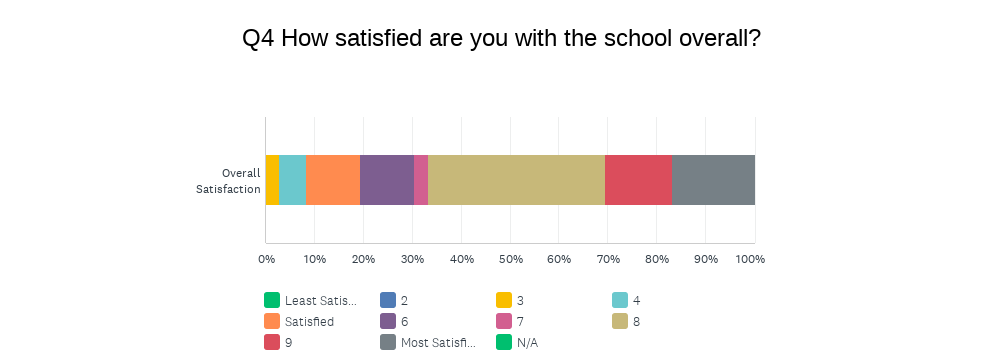
 The first chart gives you the breakdown by category; the second chart gives you the weighted average satisfaction score (out of 10). I will remind you that for this and all categories, I look at the range between 7-9 as the healthy band, obviously wanting scores to be closer to 9 than to 7, and looking for scores to go up each year. In terms of “overall satisfaction”, we have now gone from 7.13 to 7.20 to 8.17 to 7.91 to 8.0 to 7.44 to 7.53. Although it is a tick up from last year, the difference is statistically insignificant.
The first chart gives you the breakdown by category; the second chart gives you the weighted average satisfaction score (out of 10). I will remind you that for this and all categories, I look at the range between 7-9 as the healthy band, obviously wanting scores to be closer to 9 than to 7, and looking for scores to go up each year. In terms of “overall satisfaction”, we have now gone from 7.13 to 7.20 to 8.17 to 7.91 to 8.0 to 7.44 to 7.53. Although it is a tick up from last year, the difference is statistically insignificant.